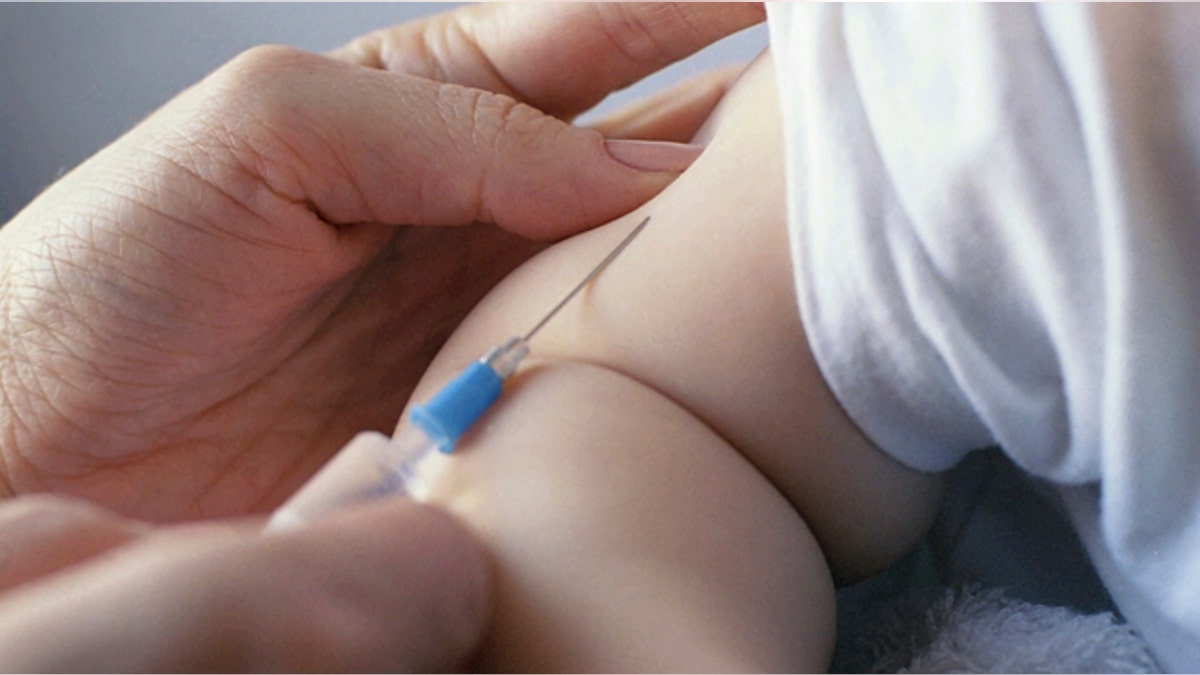
(iStock Photo)
Children who start having seizures soon after a vaccination and go on to develop epilepsy usually turn out to have an underlying cause of the seizure disorder, according to a new study published in Pediatrics.
"It's reassuring to hear that with follow-up testing, the vast majority of these cases can be identified as coming from a different cause," Dr. Shannon MacDonald told Reuters Health.
"These types of studies are important because parents have a right to expect that we take vaccine safety seriously and that we investigate any potential adverse events following immunization," added MacDonald, who studies vaccine safety and parents' decision-making about vaccines at the University of Calgary but wasn’t involved in the new research.
Some babies and young children are prone to have convulsions, or seizures, when they develop a high fever. One in 25 children will have at least one of these events, known as febrile seizures, according to the US National Institute of Neurological Disorders and Stroke (NINDS).
While febrile seizures can be frightening to parents, they usually are brief and cause no harm.
In the days after receiving a vaccine, compared to other times, children are two to five times more likely to have a febrile seizure, according to the authors of the new study.
"When a child has its first seizure shortly after a vaccination, and continues to have seizures thereafter, parents may think the vaccination has caused the epilepsy. However, in our study the majority of children who developed epilepsy after a vaccination, had a genetic or structural cause of the epilepsy," Dr. Nienke Verbeek, a clinical geneticist at University Medical Centre Utrecht in The Netherlands, told Reuters Health.
"In these children, the vaccination should only be considered a trigger for the first seizure that thereby unmasks the child’s underlying susceptibility for epilepsy," Verbeek added.
Roughly one in every 100 healthy, normally developing children will develop epilepsy after a febrile seizure, according to NINDS, but children with certain conditions, including cerebral palsy and developmental delay, are at greater risk.
To better understand the relationship between febrile seizures and epilepsy, the researchers looked at nearly a thousand children who had a first seizure within several days of being vaccinated. Twenty-six of the children were later diagnosed with epilepsy, and the researchers were able to follow up with 23 of them.
Eight of the children had Dravet syndrome, a rare genetic condition in which seizures may be brought on by fever, infectious disease, or vaccination. Three of the children had developmental delays and structural brain defects that could cause epilepsy. Four other children had gene mutations that could cause epilepsy, brain malformations, or a family history of the disease.
"Although no underlying cause was detected in one-third of children with epilepsy with vaccination-related onset, a genetic basis of epilepsy in these children is still possible: genetic analyses were incomplete, some children had positive family histories for seizures, and molecular defects underlying many genetically determined epilepsies have yet to be discovered," Verbeek and her colleagues write.
"For parents it is important to understand that a genetic cause (a so called DNA-mutation) for epilepsy cannot be induced by vaccinations," Verbeek told Reuters Health. " These mutations are already present in the child before it is born. They may have been transmitted by one of the parents, but more commonly have occurred spontaneously around the time of conception."
The findings “provide a pretty strong case that this was not caused by the vaccination,” Dr. Jorn Olsen told Reuters Health in a telephone interview.
Olsen, a professor at Aarhus University in Denmark and at UCLA who has studied febrile seizures and epilepsy, added, “They probably would have gotten epilepsy in every case so that the disease was present at least for some of these already at the time when they had the vaccination.”







































